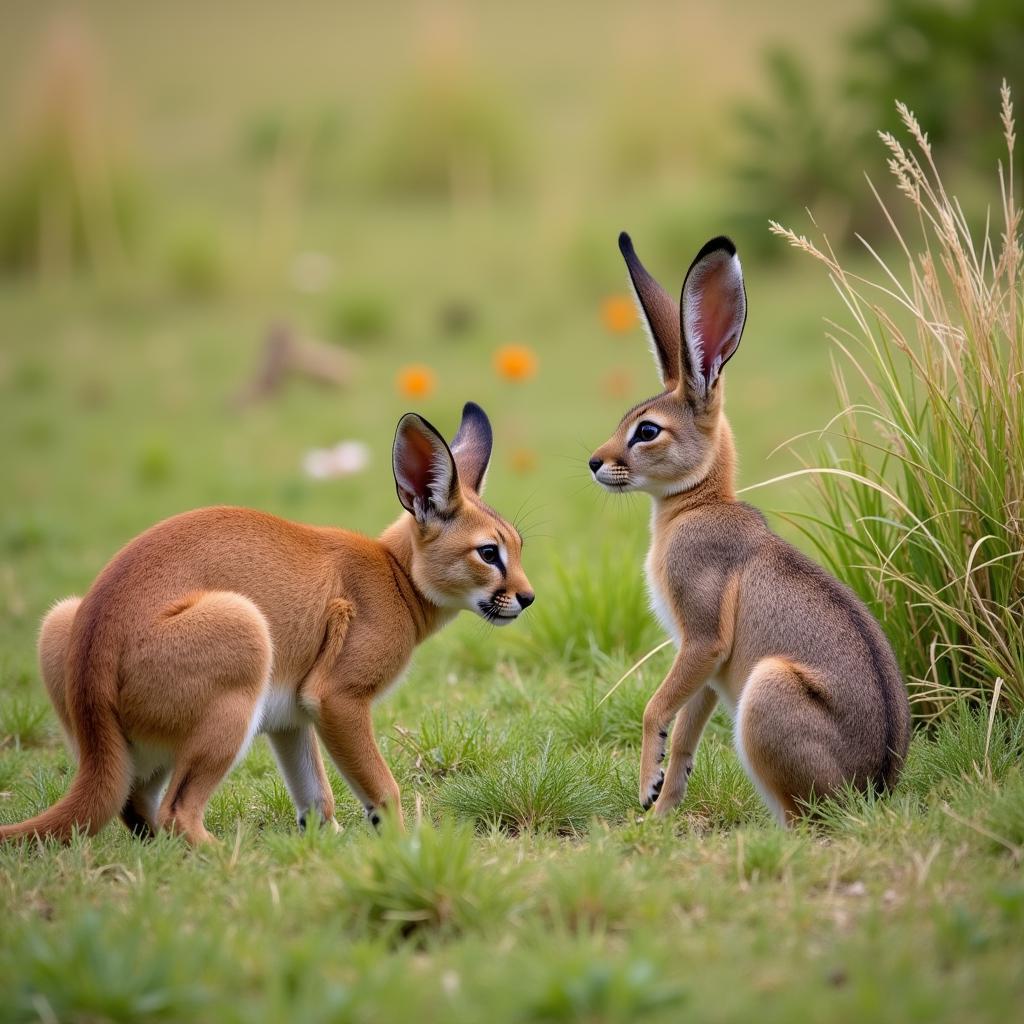Unveiling the Secrets of the African Civet Cat
The African Civet Cat, a fascinating creature shrouded in mystery, roams the diverse landscapes of sub-Saharan Africa. This unique animal, often mistaken for a feline, actually belongs to the Viverridae family, a group more closely related to mongooses and hyenas. Let’s delve into the captivating world of the African civet cat, exploring its intriguing habits, distinctive features, and the cultural significance it holds across the continent.
African Civet Cat: Appearance and Habitat
The African civet cat is a medium-sized mammal with a distinctive appearance. Its coarse fur, typically greyish-brown, is marked with bold black spots and stripes, providing excellent camouflage in its natural habitat. A prominent black stripe runs down its spine, adding to its striking look. What truly sets the civet apart, however, is its long, bushy tail, often tipped with black, and the erectile mane along its back, which it raises when threatened.
These creatures are highly adaptable, thriving in a variety of habitats, from dense forests and woodlands to savannas and even mountainous regions. They are primarily nocturnal, venturing out under the cover of darkness to hunt for food. Their diet consists mainly of small mammals, insects, reptiles, birds, and fruits, making them opportunistic omnivores.
The Peculiar Scent of the African Civet Cat
One of the most remarkable features of the African civet cat is its potent scent. They produce a musky secretion called civetone, which is stored in perineal glands near their anus. Historically, this substance has been highly prized in the perfume industry as a fixative, helping fragrances last longer. While synthetic alternatives are now widely available, civetone continues to be associated with the unique aroma of the African civet cat. Is an [african civet cat for sale]? Sometimes, but it’s important to be aware of ethical and legal considerations.
African Civet Cat Behavior and Social Life
African civet cats are generally solitary animals, except during mating season. They are known for their agility and climbing prowess, often seeking refuge in trees when threatened. Although generally shy and elusive, they can be fiercely defensive when cornered. There have even been reported cases of [african civit cat attacks human], highlighting the importance of respecting their space in the wild. Their vocalizations, including growls, hisses, and chirps, add another layer of complexity to their communication. Want to hear an [african civet cat sounds]? Recordings are available online and offer a fascinating glimpse into their world.
The African Civet Cat in Culture and Conservation
The African civet cat holds a unique place in the cultures of various African communities. In some regions, it is considered a symbol of cunning and resourcefulness, while in others, it is associated with traditional medicine and spiritual beliefs. The continued exploitation of civets for their scent glands raises concerns about their conservation status. Protecting their natural habitats and promoting sustainable practices are crucial for ensuring the survival of this fascinating species.
Conclusion: Protecting the Future of the African Civet Cat
The African civet cat, with its unique characteristics and ecological role, represents a vital part of Africa’s rich biodiversity. Understanding their behavior, habitat preferences, and the threats they face is essential for implementing effective conservation strategies. By promoting responsible tourism and supporting conservation efforts, we can ensure that future generations continue to marvel at the enigmatic African civet cat.
FAQ
- What does an African civet cat eat? They are omnivores, eating insects, fruits, small mammals, and more.
- Are African civet cats dangerous? They are generally shy but can defend themselves if threatened.
- Where do African civet cats live? They inhabit diverse environments across sub-Saharan Africa.
- What is civetone? It’s a musky secretion produced by civet cats, used in perfumery.
- Why is the African civet cat important? It plays a vital role in the ecosystem and holds cultural significance.
- What sounds do they make? They make a variety of sounds, and you may be interested in finding recordings of [african civet cat sounds].
- Are there any famous South Africans, like maybe [elon musk south african]? Yes, Elon Musk was born in South Africa.
Did you know that traditional [african hunting mask] designs sometimes incorporate animal features, including those resembling the civet cat?
When you need assistance, please contact Phone Number: +255768904061, Email: kaka.mag@gmail.com Or visit: Mbarali DC Mawindi, Kangaga, Tanzania. We have a 24/7 customer care team.

